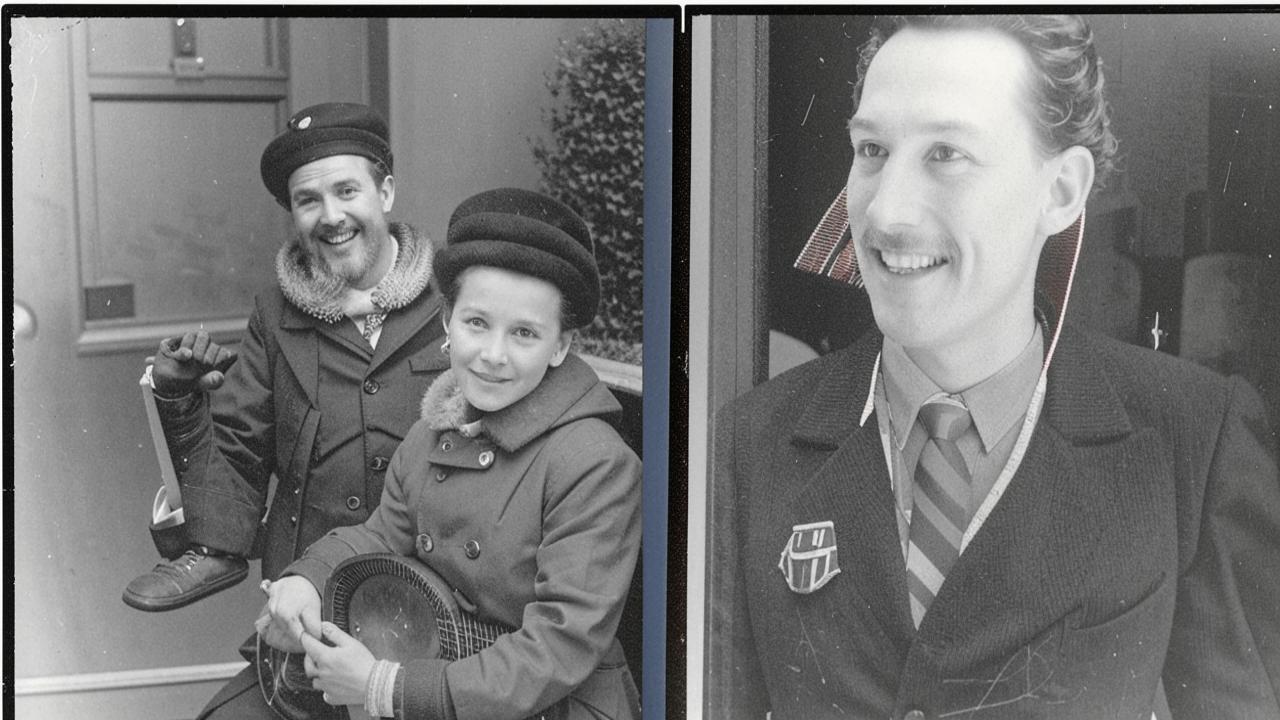
psychologist, orthopedic therapist, expert of the online school of psychological professions “Psychodemia”
“Most people know and understand the term “co-dependency”. There are even special 12-step programs that help to cope with this problem. Co-dependents are characterized by blurred or absent personal boundaries, fear of loneliness and the feeling that they cannot cope without other people. But in modern psychology there is another condition. It is completely opposite to co-dependence. It is talked about and known much less. This state is called “counter-dependence”.
Behind workaholism, a list of endless achievements of a successful colleague or countless short-term romances of your girlfriend may actually hide loneliness, fear and the need for other people. How do counterdependents live and behave? Let’s get to the bottom of it.
What we’ll talk about
What is “counterdependence”?
“Counterdependence” in the most general sense is a fear of intimacy, a refusal of attachment, when a person has no need for other people. This behavior is often associated with an avoidant attachment style. In it, people do not seek to get very close to others. This pattern is formed in early childhood.
From the outside, counterdependent people often look successful in relationships. They are constantly surrounded by friends and buddies, sociable, open. Such people are not afraid to make contact and make new acquaintances. Often they have one bright novel is replaced by another. They also demonstrate their independence in relationships by all means.

But such communication has a certain peculiarity – the counterdependent avoids opening up too much and going into intimacy. It is unbearable for him to show his vulnerabilities and weaknesses to a stranger. Even if it is his partner, lover or a very close friend.
Outwardly, counterdependent people very often look confident (sometimes even too confident), successful. But inside things are different. They are indeed extremely independent and successful in business, work and self-actualization, but in long-term close relationships regularly fail.
History of the concept of “counterdependence”
The concept of “counterdependence” in psychological science is quite young and little researched. In recent years, interest in it has been growing, and more books on the subject have appeared. The first references to the state of “counterdependence” date back to the 80-90s of the XX century.
For example, psychologists Fuller, Hilsenroth, and Handler in 1996 studied early memories and their relationship in forming attachments in adulthood. What they did. The researchers contrasted mature forms of attachment with counterdependence, which they described as “a highly conflictual state in which conscious and unconscious efforts are made to avoid and deny the need for closeness because of an underlying fear.”

In contemporary literature, several authors have devoted their works to the study of this topic. One of the best known and most comprehensive is Berry and Jana Winehold’s “Escape from Intimacy.” In it, the authors explore in detail the very concept of counterdependence, the characteristics of personality, and also offer their own “program” to free themselves from this state.
Modern psychology helps to understand why it is so difficult for individuals to let someone close to their feelings and emotions.
At first glance, it may seem that counterdependence is the same as narcissism. After all, such people also keep their distance, do not share their emotions and experiences, but deep down inside they have a fear of intimacy.
However, this is not the case. Counterdependents may be aloof in relationships and fear intimacy. But they are empathic, have empathy, and know how to empathize. Understanding this difference is important for practicing psychologists and psychotherapists to gently build rapport with counterdependent clients.
Signs of counterdependence
If your friend went through a painful divorce six months ago and is not looking for a serious relationship, it is too early to talk about counterdependence. However, if her close relationships have lasted a maximum of six months in her entire 30-year life, then there’s reason to think twice. How do counterdependents communicate?
1. their relationships with people are usually superficial
They are great at finding common ground with others. It is often easy for them to make new acquaintances and social connections. But at some point, counterdependents seem to hit a wall. Then the relationship stops developing. It doesn’t mean that communication ends. It just doesn’t develop into a trusting and intimate relationship. And this happens regularly.
2- A large amount of personal space
Having a part of life that a person almost never lets anyone else into is normal. But in counterdependent people it is very large and significant. They often find it difficult to share their interests and hobbies with even their closest loved ones.

3- Feeling uncomfortable in close relationships
In long-term and serious relationships, counterdependents often describe feeling uncomfortable, as if they are being “smothered.” In some cases, this can even be felt physically. It’s as if there is “no room to breathe.” However, this is an anxiety that is accompanied by a fear of intimacy.
4. A strong fear of being abandoned
Despite all the discomfort of close relationships, counterdependent people really want to create real intimacy. Just as much they fear losing it. So much so that they often choose not to build trusting and close relationships. Sometimes they may push their partner away and stop communicating, barely feeling the slightest threat of a breakup (not always real).
5. Tend to choose “unsuitable” partners
Counterdependents are very afraid of being rejected. They often subconsciously choose counseling partners. For example, those who get too involved in a relationship or, on the contrary, are not ready to build a serious one.
With people with a healthy form of attachment, counterdependents often experience intense anxiety or a desire to escape. This is why they usually build only friendly or buddy relationships with them.

6. High stress levels and frequent emotional burnout
Counterdependent people cope with the fear of loneliness due to their high level of employment and strong emphasis on self-actualization. Therefore, they are rarely free, often tired, and prone to occasional emotional burnout. An excessive number of hobbies and hobbies, work do not give quality rest and restore resources.
7. Often easily translate relationships into a sexual format
For counter-dependent personalities, sexual relationships without commitment are much more understandable and safe than tenderness and intimacy with one partner. They may suggest just sex. Often this is done in a situation where a person has some interest or sympathy for another.
Personality traits of counter-dependent partners
Each of us is different. Two identical people with traits of counterdependence will also not be the same. Nevertheless, the psychological portrait of such a personality usually includes the following features:
- often criticize others, but comments in their own address perceive very painfully;
- perfectionists. These are exactly the people who do something perfectly or not at all. Afraid of mistakes. Very difficult to survive them, if they happened;
- very strong inner critic. It’s that voice inside them that keeps telling them that they’re not trying hard enough;
- hyper-controlling in different areas of their life;
- don’t know how to ask for help and feel very guilty if they have to ask for something;
- for them vulnerability is synonymous with weakness. This is why counter-assertive people find it difficult to show their challenging, negative or complex feelings and emotions;
- they suffer from loneliness and emptiness deep inside;
- they often have few or no memories from their childhood or only have them when they are old enough.

What do counterdependent people look like in ordinary life?
You may suspect traits of counterdependence in your loved ones if you recognize them in one of the descriptions below.
1- Angelina is hardworking and very involved in work processes. She tries to do everything at the highest level and often expects the same from her coworkers. In the fulfillment of work tasks is very demanding not only to herself, but also to those around her. Despite the fact that she perfectly copes with labor functions, she does not get a promotion because she is not good at establishing communication in the team, as well as with her superiors.
2. Pauline always looks perfect. She seems to have stepped off the pages of a fashion magazine. Talkative and sociable, cheerful. But it is very difficult to get along with people. Few people know that she is intimidated by intimacy in relationships.
3. Rose is constantly in business, cares and movement. She has a beautiful home, children and husband. It seems that she has time to do everything and even more: to do household chores, to take the children to circles and sections, to do volunteer work, as well as leave time for hobbies and hobbies. Periodically, Rosa complains of chronic fatigue, poor sleep and headaches.
Her spouse has had numerous conversations with her about the fact that they hardly spend any time together. He feels lonely in their relationship. But nothing has changed. At some point, the husband had an affair on the side.

4. Andrei is outwardly confident, interesting, attractive man. He succeeds well in his work. He is sociable and open. No one guesses that inside he feels a huge insecurity in himself and his own strength. When he had to give a speech in front of a large audience at work, he first spent a long time preparing and then resorted to smoking soft drugs right before the speech. All to deal with his anxiety and fear of failure.
He also has a new romance almost every week. He says he has no luck with women. They’re all shallow and uninteresting. In fact, every time he starts to get a little attached to a man, there comes an even greater fear than that of public speaking. At the same moment, Andrei finds a lot of flaws in the girl and leaves her.
What unites such different people? For each of them, counterdependence is a component of life, which negatively affects its quality.
How does counterdependence affect a person and his relationships?
1. Difficulty building emotional intimacy in relationships
A common consequence of counterdependence is difficulty in establishing an emotional connection. And this difficulty can manifest itself not only in partner relationships, but in all other relationships (friendships, work relationships, buddies).
Often counterdependent people can seem aloof, emotionally cold and unempathetic. This causes distrust on the part of others. The consequence is alienation in teams, further exacerbating the isolation of counterdependents. Their focus on themselves and the belief that it is important to be self-sufficient only grows stronger.
Counterdependent people may find it difficult to express love, to talk about their relationship with their loved ones. Because of this, partners, friends and family can often feel emotionally distant or unsatisfied. At some point, the alienation can become so severe that it jeopardizes the very existence of the relationship.

2- Lack of trust in the partner
Counterdependents have trust issues. This is why they often do not open up to their loved ones at all or do so very slowly. Independence and self-sufficiency are very important to them. And expressing their vulnerability or asking for help often seems impossible.
Nevertheless, close relationships are impossible without trust. Its absence creates isolation. And this often makes counterdependent people feel lonely. They feel trapped. So without trust, there can be no relationship. And they really want to build one. But to trust is too disturbing and scary.
3. emotional burnout, chronic stress and depression.
The conditions listed above are more common in people with counterdependence for several reasons.
- First, such people are usually very career-oriented, self-realized and put a lot of energy and resources into these areas. They are very productive and successful. But the flip side of this is the lack of skill to stop and rest in time.
- Secondly, due to perfectionism, they cannot do something “afterthought”, so they put their full effort into it.
- Third, it is unusual for them to share their experiences with loved ones, as well as to ask for help. They try to cope on their own even when personal resources are running low or insufficient.
In 2020, the American Psychological Association conducted a study on postpartum depression. 159 people from 19 to 59 years old were surveyed.
It turned out that women with postpartum depression had a more pronounced degree of counterdependence than those who had no signs of the disorder.
The explanation for this trend is very simple. Counter-dependents often manage to cope independently with caring for themselves, their home, their partner and being successful at work before the baby arrives. Afterwards, however, it becomes impossible to continue to do the same tasks without support.

Numerous clinical observations show that these women, unable to seek help, can become suddenly and unexpectedly depressed. Once they ask for and accept support, many of them recover remarkably quickly.
There is a view that counterdependence affects not only the individual, but also the community, the country and society as a whole. For example, Lawrence Bloom, M.D., in one of his papers, suggests that the condition also contributes to the increased prevalence of the drug opium, income and wealth gaps among different segments of the population, and even social safety gaps in the United States. At the same time, however, there is no concrete and validated research on this issue.
How to overcome counterdependence?
1- Realize and accept that you still need warm, close relationships. Yes, you have difficulty trusting others. But recognizing the problem is the first and important step to resolving it.
2. Get to know your counter-dependency. What is it like? How and when does it manifest itself? What habits have you formed under its influence? How does it affect your life in general? In what areas has it already gained power? And where it does not influence in any way?
3. learn to cope with anxiety. Self-regulation skills, relaxation tools and psychological techniques will help. At times when you feel other people are approaching too much, your anxiety rises. You usually just run away from it and relationships at the same time. Alternative ways of coping with anxiety can help a lot at this stage.

4. Accept the fact that this behavior has helped you deal with something difficult in the past. The truth is that none of our psychological traits arose on their own. Likewise, your counter-dependency was once a mechanism that was needed in the current realities. Therefore, at some point in your life, it helped you a lot.
As we enter adulthood, we no longer need such protection. However, we continue to act and build relationships according to the usual rules.
5. Learn to ask for help. One of the biggest challenges for you is to be able to ask for support in time. Nevertheless, you can’t do without it if you want to cope with your counter-dependence. Learn to share your difficulties little by little with your loved ones and accept their help and support gratefully.

6. Remember – what is “broken” in the relationship is also healed in the relationship. That’s why you need to go into intimacy and share your vulnerability to overcome counter-dependency. There’s no getting around it. It may be worth starting with a safe space – psychotherapy. And later on, transfer this new experience to relationships with your partner and loved ones.
It is often very difficult to do without psychotherapy in the healing of counterdependence. In contact with a specialist, which will feel safe and comfortable for you, this process will definitely go faster and calmer.
Importance and relevance of the topic of counter-dependency
We live in an age where the traits associated with counter-dependent personalities are not just considered normal, but are supported and even cultivated. We often hear how important it is to be self-sufficient and independent.
But we should not forget that the stage of counterdependence in personality development is not the final stage. Normally, it is followed by another one. This interdependence is the stage at which a person feels self-sufficient and independent. But he creates a voluntary and reciprocal relationship with his partner. This is why it is so important to explore the condition of counterdependence, a common condition today.

Practicing psychologists are often faced with client requests: “I have difficulties in building long-term relationships”, “I lose interest in my partner after a few months”, “I find it difficult to be friends”.
Understanding the peculiarities of the personality with counter-dependent traits can help in building a comfortable connection with the client. It will also help to choose optimal vectors of work.
More information about this condition will help counterdependents themselves to better understand the nature of their difficulties, and their loved ones – to take into account the peculiarities of their loved ones and to build relationships with them more easily.






